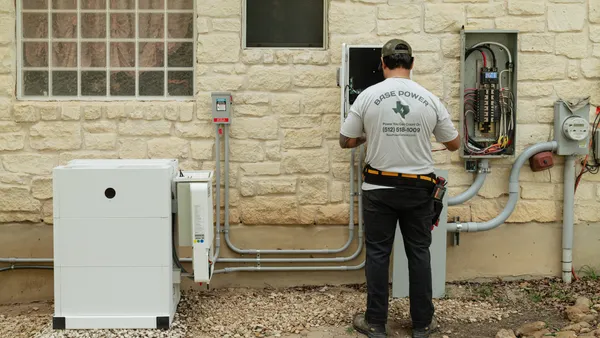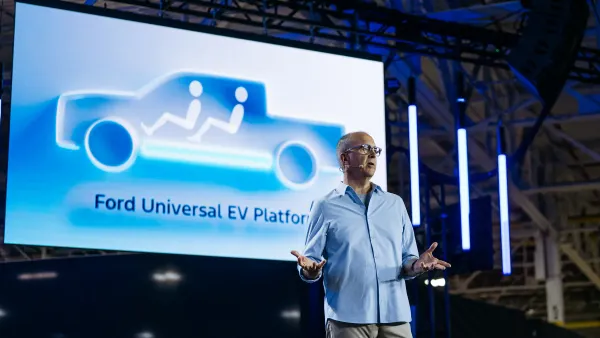Dive Brief:
- The New Jersey Board of Public Utilities last week launched a stakeholder process to examine what potential impact widespread adoption of electric vehicles might have upon the state’s electric distribution system.
- At the same time, the BPU accepted a report from the Regulatory Assistance Project (RAP) titled "Getting from Here to There: Regulatory Considerations of Transportation Electrification.”
- The report suggests that regulators can support pilot projects that provide utility companies with the ability to "develop and explore a portfolio of business models that include delivery or support of EV charging services."
Dive Insight:
Electric vehicles remain a relatively small portion of utilities' demand, but in New Jersey, regulators say they believe widespread adoption may be on the way — and they want their grid to be prepared.
"We at the NJBPU realize that regulations may need to change," Board President Richard S. Mroz said in a statement. "EVs are quickly emerging while utility distribution systems are becoming more adaptive and flexible. The future of EVs and how the electrics system integrates them deserves our attention."
In addition to laying out ways regulators and utilities could begin to advance on the issue, RAP's report notes that managed EV charging can provide economic benefits for the electric grid, and that stakeholders, including electric utilities and the private market, have roles in driving EV infrastructure and adoption.
"A key recommendation in the RAP report is that setting EV infrastructure policies is best addressed through a broad stakeholder proceeding," the BPU noted. At a date yet to be determined, regulators will host an open stakeholder forum.
Regulators directed BPU staff to prepare a draft report addressing stakeholder inputs and to provide recommendations on potential EV infrastructure policies within 180 days. Specifically, the BPU said the report should provide recommendations on any tariff revisions or updates that may be needed to address EV charging infrastructure.
RAP's report is an attempt to prepare for coming changes not just to the electric grid but to the transportation sector more broadly. The group notes that between 2010 and 2015, the costs of a lithium-ion battery pack used in EVs fell 65%, and costs are expected to keep declining.
"The potential for autonomous driving, and ride-sharing and ride-hailing services like Uber and Lyft have already begun to change the way we use and own automobiles," RAP wrote. "The transportation industry appears to be poised for rapid demand growth from customers."













